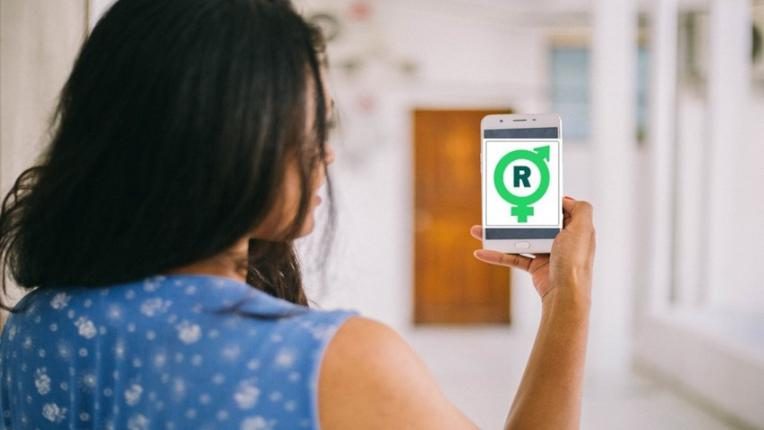17 APRIL 2018
A new smartphone app is helping combat teenage pregnancy in Timor Leste by providing teenagers access to sexual and reproductive health services and information.

Almost a quarter of all girls in Timor Leste have a child before turning 20. This high rate of teenage pregnancy is driven by factors including:
- Girls and boys lacking knowledge about how their bodies work and how pregnancy happens;
- Local taboos about sex and reproduction that don’t allow open discussion and lead youth to hide their sexual relationships;
- Lack of access to contraception;
- Young women’s lack of power in relationships.
Questions about sexuality and reproduction
The Reprodutiva app provides a safe and confidential space for young people, where they can have questions about sexual and reproductive health answered by professionals. Useful tips are also shared in group chats and young users can also get individual consultations and medical appointments via the app.
It helps us to avoid traditional myths about our health. We learn scientific knowledge about sexuality instead.
The project aims to help change the mindset of all young people in relation to sexual and reproductive health. It works directly with girls to give them the opportunity to build their knowledge, to understand and exercise their rights and develop their support networks. It is an important part of our efforts to end early pregnancy and child marriage in Timor-Leste.
Myth busting sexuality and relationships
Questions girls have asked via the app range from, “What is ovulation and how is a baby made?” to “Why can we not wash our hair when the period is coming?” The last question was inspired by a local belief that girls should not wash their hair when they are menstruating.”
The app was created by Plan International Timor-Leste with Marie Stopes, an organisation with expertise in sexual health. It’s available on the Play Store so is available to anyone with an Android smartphone.
Etha Mota, Programme Manager, Plan International says “We already knew that talking about sex is a taboo in Timorese society and that knowledge about sexual and reproductive health is very limited. But when talking to the teenagers it became obvious that many of them were confronted with these topics for the first time. Also, most teachers are quite ashamed and do not feel comfortable talking about sexuality and reproductive health.”
“So when given the chance many of these young people were very curious and loved to ask their questions. Some dared to ask their questions in public, others were shyer but also very curious about learning more. So for all of them the opportunity to ask all their questions through the app directly and at the same time confidentially is a great option to learn more about what happens to their bodies during puberty, about sexuality and about health.”
Girls are healthier and empowered
App user Maria, 16, says “When I started secondary school, we had something like sex education in our biology lessons. But we only talked about the human body in general, not so much about sexuality.
“With this new application, when I feel unwell I can ask questions through the free call or I can ask questions through the chat function. This is god, because I get a direct response from professional moderators and experts and it is confidential.”
This app is helping me learn more about myself and about my own health.
“In the past I have sometimes used the internet to get more information about health or if I feel sick. But there isn’t much information in my language, Tetum. In the future, I may need to get more information about sexual health because it is very important for me as a girl to stay healthy and be able to have a family in the future.”
Grazinha, 15, adds “For me, particularly as a girl, I feel happy and proud because this app is helping me learn more about myself and about my own health. And I believe that if girls and women have access to this application, it will help us avoid traditional myths about our health. We learn scientific knowledge about sexuality instead.”
“This app can help me to develop myself as a girl and to know about my body, especially now as I am still young. And it can help me prevent diseases.”
Categories: Education, Sexual and reproductive health and rights


